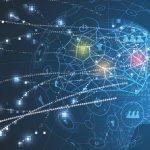Right from the start of the year 2018, you could almost say that there is no doubt of the impact AI will have in the upcoming years. Reports from IDC states that the adoption of cognitive systems and AI will result in a drastic revenue increase worldwide from nearly $8 billion in 2016 to upwards of $47 billion in 2020. Amidst the hype, let's really look at the current adoption … [Read more...] about Why the Adoption Rate of AI is Increasing
Artificial Intelligence
Learn about the latest developments in artificial intelligence and how it is transforming industries around the world. Our website offers insights and resources for understanding AI and its applications.
Is Open Data the Silver Bullet for Better Drugs?
Open data sharing within the pharmaceutical industry is crucial for opening the floodgates of innovation. Successful innovation depends on having a rich supply of high-quality data because, without the right kind and quantity of data, there wouldn't be a foundation for the research required to innovate. The best way to achieve this critical mass of high-quality data is by … [Read more...] about Is Open Data the Silver Bullet for Better Drugs?
How Machine Learning Can Help Businesses Leave Bad Customer Service In The Dust
Each time a customer support representative interacts with a customer, they create data that can be used to improve their products and services. Although that type of data is important, there's another kind of data that's just starting to be analyzed: immediate feedback on how a customer really feels. On the surface, they may appear calm and complacent, but they could be more … [Read more...] about How Machine Learning Can Help Businesses Leave Bad Customer Service In The Dust
AI-Driven Test System Detects Bacteria In Water
This advertorial is sponsored by Intel®. Clean water and health care and school and food and tin roofs and cement floors, all of these things should constitute a set of basics that people must have as birthrights. 1 “ Paul Farmer, American Doctor, Anthropologist, Co-Founder,Partners In Health Challenge Obtaining clean water is a critical problem for much of the world's … [Read more...] about AI-Driven Test System Detects Bacteria In Water
How AI Can Help Alleviate Poverty
With the many, many uses of AI, we're seeing an increase in researchers, scientists, organisations and start-ups of all kinds looking at ways we can leverage this technology for good. Whilst high-technology' has become synonymous with high wages, and high investment, there are loads of projects out there applying this technology to poverty reduction. Harnessing the power of AI … [Read more...] about How AI Can Help Alleviate Poverty
What is artificial intelligence (AI)?
AI refers to the development of computer systems that are able to perform tasks that normally require human intelligence, such as recognizing patterns, learning from experience, and problem-solving.
AI systems can be trained to perform these tasks through the use of algorithms and machine learning techniques, which allow them to analyze and interpret data and make decisions based on that analysis. AI has the potential to significantly improve the efficiency and accuracy of many tasks, and is being applied in a wide range of industries and applications.
How is artificial intelligence used?
AI is used in a variety of industries, including healthcare, finance, retail, and transportation, to improve efficiency and productivity.
For example, in healthcare, AI can be used to analyze medical images or electronic health records to identify patterns and make diagnoses, while in finance, it can be used to identify fraudulent activity or optimize investment strategies. In retail, AI can be used to personalize customer experiences or predict demand for products.
What are some examples of artificial intelligence?
Examples of AI include self-driving cars, language translation software, and virtual assistants like Apple’s Siri or Amazon’s Alexa.
Other examples include chatbots that can handle customer service inquiries, predictive analytics tools that can forecast future outcomes, and recommendation engines that can suggest products or content based on user preferences.
What are the potential risks and benefits of artificial intelligence?
AI has the potential to revolutionize industries and improve our daily lives, but it also raises ethical concerns and the risk of job displacement. One concern is the potential for AI systems to perpetuate or amplify biases present in the data used to train them, leading to unfair or discriminatory outcomes.
There is also the risk that AI could be used to automate tasks or make decisions that have negative consequences for humans.
On the other hand, the benefits of AI include improved efficiency and accuracy, the ability to process and analyze large amounts of data quickly, and the potential to tackle complex problems that are difficult for humans to solve.
How can I learn more about artificial intelligence?
Datafloq offers a wide range of AI articles. There are many resources available for learning about AI, including online courses, books, and industry events.
Some popular online courses include those offered by Coursera, edX, and Udacity. There are also many books on AI that provide a broad overview of the field or delve into specific topics, such as machine learning or natural language processing.
Attending industry events, such as conferences or meetups, can also be a great way to learn about AI and network with others in the field. It is important to stay up-to-date on the latest developments in the field, as AI is a rapidly evolving field with many new advances and applications emerging all the time.






